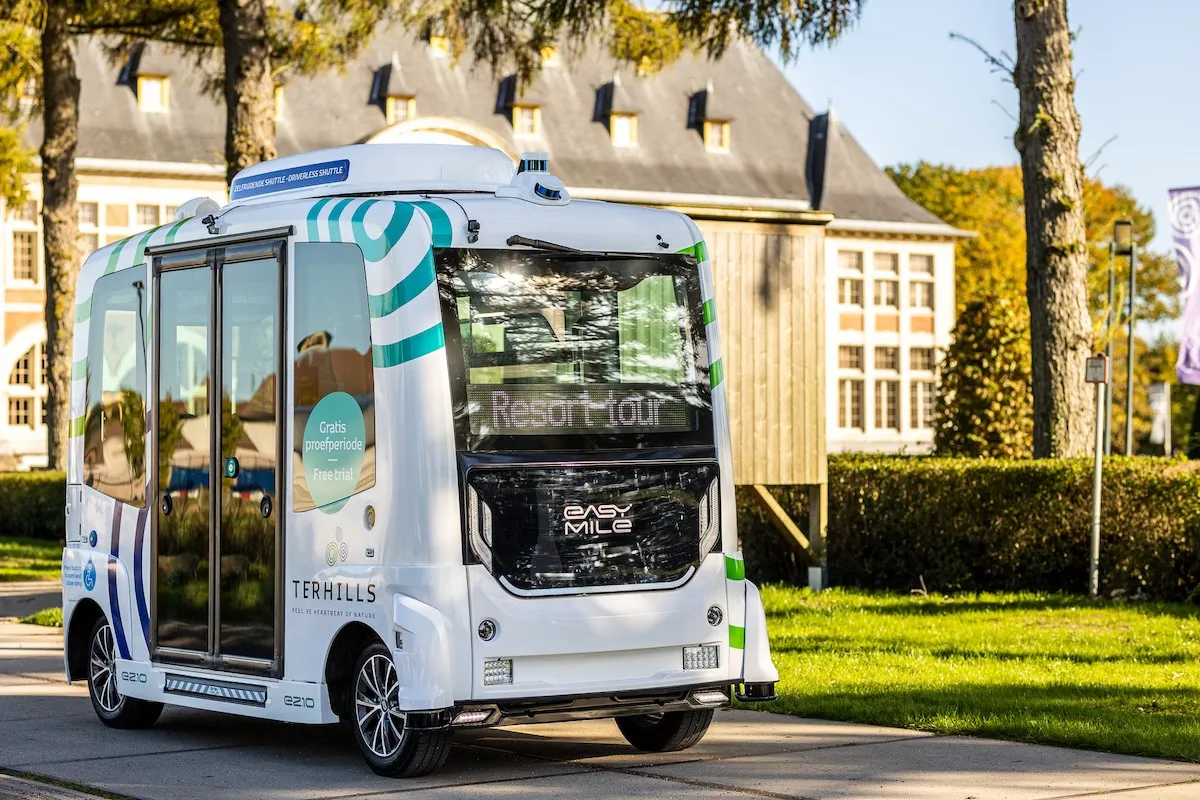
Autonomous vehicle (AV) specialist EasyMile has won a project which could be worth €4 million for a fleet of fully-driverless autonomous shuttles to run at a Belgian tourist site, seven hours a day, four days a week.
The free-to-use shuttles will run on a 14km route without a human supervisor at a maximum speed of 20km/h from Monday to Friday from 9am - 4pm at the Terhills complex in Flanders, which comprises a hotel and resort.
“We will collect user data and feedback from users to substantiate the business case," says Tim De Ceunynck, project manager mobility at LRM, which owns Terhills.
"We expect the system to be competitive with a classic manned bus." A decision is expected in summer 2023.
The AVs replace an electric bus on the site "that suffers a low frequency, and isn't being used enough".
The service connects the old town of Kelheim with the Donaupark commercial area and serves a road network of almost 14 km in length. The vehicles will travel at a maximum speed of 20 km/h. Rides in the autonomous vehicles will be free.
Waiting time for passengers at the various stops will be a maximum of 10 minutes, EasyMile says, and this can be expanded to half a dozen shuttles, serving each stop every four minutes during the busiest hours of the day.
The service employs a smart fleet management and booking tool developed by Belgian company Ush, which belongs to the Lab Box start-up studio supported by D'Ieteren Automotive, which has been part of all autonomous shuttles deployments on public roads in Belgium.
Tom Vanham, general manager at LRM, insists: “For us, the shuttle system is not just a short-lived demonstration project, but an essential part of a complex mobility puzzle.”
Benoit Perrin, general manager of EasyMile, concludes: “The longevity and commercial nature of this service is a real tipping point for the viability of autonomous shuttles, and mobility overall."








